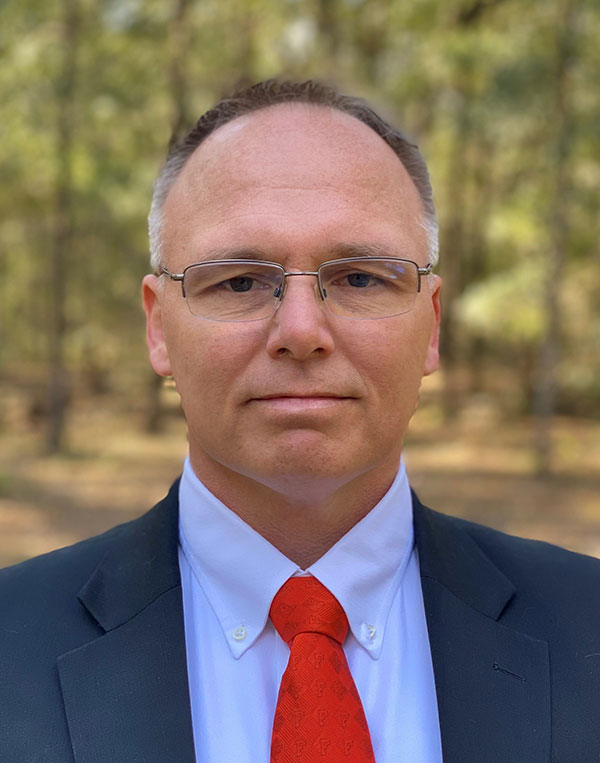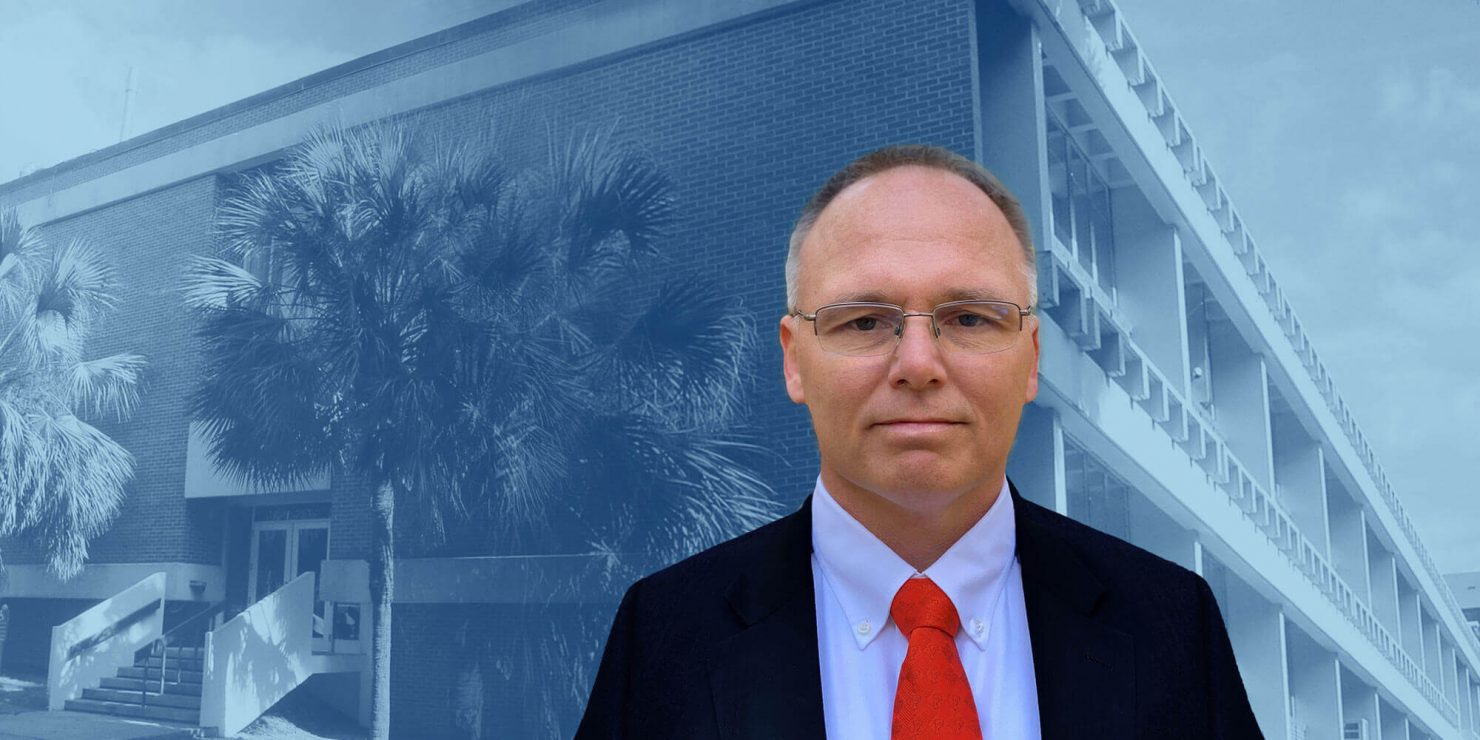
Warren E. Dixon, Ph.D., Newton C. Ebaugh Professor in the UF Department of Mechanical & Aerospace Engineering (MAE) and director of the Air Force Office of Scientific Research (AFOSR) Center of Excellence in Assured Autonomy in Contested Environments
Warren E. Dixon, Ph.D., Newton C. Ebaugh Professor in the UF Department of Mechanical & Aerospace Engineering (MAE) and director of the Air Force Office of Scientific Research (AFOSR) Center of Excellence in Assured Autonomy in Contested Environments, has been named the new chair of MAE in the Herbert Wertheim College of Engineering.
An expert in nonlinear controls and robotics with a prolific portfolio of proven research projects funded by federal agencies, Dr. Dixon brings a richness of experience and professional acumen to the guidance of faculty and students. He has been active in robotics and automated systems his entire career, with broad application domains in personalized rehabilitation robotics; artificial intelligence; and automated air, land, and marine robotic systems. During his 15-year tenure at UF, he has mentored over 35 doctoral students in Mechanical & Aerospace Engineering.
“It is exciting to lead a department where world class researchers are leveraging their diverse expertise to solve significant societal challenges,” Dr. Dixon said. Dr. Dixon looks forward to facilitating the direction of work currently underway in the department:
- MAE is aiming for the stars through advances in combustion and propulsion to facilitate access to and operation in space, through advances in spacecraft design to advance large scale science missions and through thermal management science that can lead to exploration of new frontiers.
- Successful efforts in the development of robotic systems are enabling breakthroughs in advanced manufacturing, human machine interactions, automated transportation through driverless cars and urban air mobility, environmental management in remote and dynamic environments, and technologies to address enduring national security/defense challenges.
- Researchers in MAE are leading efforts to understand the mechanics of biological systems, leading to breakthroughs in cancer and soft matter engineering, regenerative medicine, and improvements in the use of blood products during the treatment of trauma.
- MAE is also continuing to expand energy management and clean energy production and storage to help the nation grow a green economy and curb carbon emissions.
- The department is seeking new faculty with expertise in robotics and artificial intelligence who can collaboratively address the health and management of coastal regions.
Under Dr. Dixon’s leadership, the MAE department is putting in place a strategy for undergraduate coursework that aligns with UF’s AI University initiative. “Our students have traditional strengths in fundamental understanding of modeling and predicting the behaviors of physical and energetic systems. We are working to empower them to also understand how data science and artificial intelligence can augment traditional methods as a means to explore increasingly complex systems,” Dixon said.
Students are involved in all aspects of MAE research, and student design-and-build teams have taken part in national and international competitions. Examples include:
- Gator Theme Park Engineering and Design (TPED) Club members won 1st Place Overall, Best Rollercoaster, and Best Mechanical Design at the 2018 Ryerson Invitational Thrill Design Competition presented by Universal Creative; and two Gator TPED teams won 1st Place and 3rd Place respectively in the 2018 Cornell Design Competition.
- The University of Florida student team captured the top spot in the American Society of Mechanical Engineers’ Student Design competition in 2019.
- American Institute of Aeronautics & Astronautics student members from UF compete in several design competitions, including Design/Build/Fly and the NASA-sponsored Hybrid Rocket programs.
- Generational Relief in Prosthetics (GRiP) members design and manufacture 3D-printed assistive devices, adaptive controllers and toys, and many other projects to aid children with upper limb differences. They also conduct research in a variety of areas and strive to educate the community on STEM through outreach activities.
Dr. Dixon envisions the future of the department not just in terms of overall growth, but also through inventive synergies with new technologies and innovations. “Mechanical and Aerospace Engineering are disciplines focused on the conservation of and conversion of energy and forces and their effects on motion. At UF, we seek new frontiers in these disciplines. We aspire to improve our understanding of the universe from the atomistic scale interactions of materials to physics at a planetary scale. As we explore increasingly complex systems, we are expanding our expertise in the fusion of dynamics and information through pioneering efforts in robotics, cyber-physical systems, and artificial intelligence,” he said.
In addition to his MAE position, Dr. Dixon also holds an Affiliate appointment in the Department of Electrical Engineering. He has served as the Director of Operations and an elected member of the Board of Governors for the IEEE Control Systems Society. He was recently awarded the IEEE Control Systems Society Distinguished Member Award for his technical contributions and service to the community. He was also awarded the Air Force Commander’s Public Service Award for his contributions to the U.S. Air Force Science Advisory Board.
Dr. Dixon received his B.S. and Ph.D. degrees in Electrical Engineering from Clemson University. Before joining the University of Florida, he worked in the robotics group at the prestigious Oak Ridge National Laboratory as a Eugene Wigner Fellow. He has authored or co-authored approximately 500 peer-reviewed articles, including four research monographs, which have been cited over 13,500 times (h-index 59). His work has been recognized by a number of early and mid-career, best paper, and student mentoring awards, and he is an ASME and IEEE Fellow for his contributions to control methods developed for uncertain nonlinear systems. His research has been continuously funded by the National Science Foundation since his early CAREER Award, with the majority of his funding coming from the Department of Defense. He is currently the lead investigator at the AFOSR Center of Excellence on Assured Autonomy in Contested Environments.
